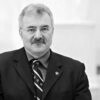Baptists Reading Together and the Birth of Modern Missions
Toward the end of the eighteenth century, English Baptists experienced a dramatic and much-needed revival that resulted in the birth of the modern missions movement. What fueled this? One important factor was a handful of pastors’ regular practice of meeting together to read, talk, and pray.
This article tells the story of how the Northamptonshire Association’s meetings promoted truth-fueled revival in the hope that pastors today would walk in these brothers’ footsteps.
HOW ANDREW FULLER PROMOTED BIBLICAL TRUTH
In the fall of 1799, William Wales Horne (1773–1826), the minister of the Baptist cause in Great Yarmouth, east Norfolk, England, gave two addresses that were later published together as a pamphlet entitled The Faith of the Gospel Vindicated(1800). Part of the pamphlet attacked the idea that “Evangelical faith…[is] the duty of the unconverted.” As Horne went on to argue,
…if faith is the work of the Spirit, and at the same time the duty of the creature, it consequently follows, that it is the duty of a man dead in sin, to give himself the Spirit of God! A sentiment equally as absurd as presumptuous! and to be detested by all sincere advocates for the glory of free grace![1]
In other words, Horne appeared to be denying that the gospel should be freely offered to all people.[2]
Andrew Fuller (1754–1815), minister of the Baptist work in Kettering, Northamptonshire, was that day’s most ardent defender of the biblical truth that faith is indeed the duty of all to whom the gospel comes. So it is not surprising that when this pamphlet fell into Fuller’s hands, he fired off a small piece that has been transmitted under the title “Remarks on Two Sermons by W.W. Horne of Yarmouth.”[3] Among other things, Fuller was distressed that Horne had used the pulpit to launch an attack on those, like him, who held to the free offer of the gospel. As Fuller said:
It is not by converting the pulpit into a stage of strife, nor by availing ourselves of the silence which decency imposes upon an audience to pour forth personal invective, that truth is promoted…It is by reading, by calm and serious reflection, by humble prayer, and by a free and friendly communication of our thoughts to one another in private conversation, that truth makes progress.[4]
In these occasional remarks, Fuller reveals an important aspect of his thinking about how to promote biblical truth. It was to be through reflective reading and meditation on what has been read, and through prayer and personal conversations. All of these means mentioned were part of Fuller’s own way of appropriating truth, though note especially the final one: “free and friendly communication of our thoughts to one another in private conversation.”
THE POWER OF FRIENDS READING TOGETHER
Fuller was blessed to be part of a close-knit circle of friends that included William Carey the missionary (1761–1834), John Sutcliff of Olney (1754–1815), and John Ryland, Jr. (1753–1825), Fuller’s biographer and the Principal of Bristol Baptist Academy.[5] And he knew from personal experience how vital it was to sit down with such men and talk through issues.
In fact, such discussions were one of the things that took place when Fuller and other ministers of the Northamptonshire Association met regularly for prayer and fellowship. For example, John Ryland notes in his diary that he and the above-mentioned friends spent January 21, 1788, together, as he explains:
Brethren, Fuller, Sutcliff, Carey, and I, kept this day as a private fast in my study: read the Epistles to Timothy and Titus; Booth’s Charge to Hopkins; Blackerby’s Life, in Gillies; and Rogers of Dedham’s Sixty Memorials for a Godly Life: and each prayed twice—Carey with singular enlargement and pungency. Our chief design was to implore a revival of the power of godliness in our own souls, in our churches, and in the church at large.[6]
Here, we have these friends praying and reading Scripture together, as well as a number of classic pastoral works. Presumably they discussed the content of what they read and in this way sought to inflame their hearts and strengthen their wills in God’s service.
I have no idea how often this sort of day together took place, but we do have a significant amount of other material (journals and correspondence from these men) that mentions books and sermons that were being read, appreciated, and recommended. In particular, there is abundant evidence that the works of John Owen (1616–1683) and Jonathan Edwards (1703–1758), the “greatest Christian theologian of the eighteenth century,”[7] were being carefully read and discussed by these friends.[8] Reflecting on and discussing Scripture and Christian literature thus deeply shaped the lives of these Christian brothers.
THE FRUITS: REVIVAL AND MISSIONS
Fuller and this circle of men were central to the revitalization of the English Baptists at the close of the eighteenth century. It was the writings of Fuller and his mentor Robert Hall, Sr. (d.1791) that played a key role in blowing away much of the hyper-Calvinism—similar to what William Horne advocated above—which bedeviled far too many English Baptist communities.[9]
Hard on the heels of the publication of these works in the 1780s and the initiation of monthly one-hour prayer meetings for revival in 1784, there was a noticeable surge of church planting, conversions, and the physical expansion of church buildings to accommodate the crowds now coming to the hear the gospel, trends which continued to bear fruit for decades.
In 1810, for example, Fuller noted in a letter to William Carey: “I preached a sermon to the youth last Lord’s Day from 1 Thess 2:19. I think we must have had nearly one thousand. They came from all quarters. My heart’s desire and prayer for them is that they may be saved.” Fuller was still rejoicing when he wrote to Ryland on December 28: “I hope the Lord is at work among our young people. Our Monday and Friday night meetings are much thronged.” A couple months later Fuller told Ryland: “The Friday evening discourses are now, and have been for nearly a year, much thronged, because they have been mostly addressed to persons under some concern about their salvation.” And what was happening in Fuller’s church was happening in Baptist causes throughout the length and breadth of England and Wales.[10]
And then it was out of this circle of friends that William Carey was sent to India and the modern missionary movement in the English-speaking world began. As missiologist Harry R. Boer put it, “Fuller’s insistence on the duty of all men everywhere to believe the gospel…played a determinative role in the crystallization of Carey’s missionary vision.”[11] Fuller himself described their sending Carey to India as lowering him into a deep gold-mine to extract “gold”—precious Indian souls—for God. And Fuller and his close friends Sutcliff and Ryland pledged themselves to “hold the ropes” as long as Carey lived.
WHAT WE CAN LEARN FROM THESE BROTHERS
It’s easy to see how the way these eighteenth-century Baptists lived together—in reading, prayer, and conversation—had an enormous impact for good in English Baptist churches, in the larger sphere of evangelicalism, and in the world at large.
We can certainly learn from these eighteenth-century brothers to take time to cultivate rich, deep friendships that are also marked by prayer and reading together, and that fine art of conversation. And who knows what God might do through such circles of friends today!
[1] The Faith of the Gospel Vindicated: Being the Substance of Two Sermons, Delivered Extempore at the Baptist Meeting, Great Yarmouth, Oct. 27, 1799 (Yarmouth, 1800), 33.
[2] Faith of the Gospel Vindicated, 26–27. Elsewhere, Horne claimed to be a defender of “repentance toward God, and faith toward our Lord Jesus Christ, as covenant blessings, the free gifts of Jehovah, and of the operation of the Holy Spirit in the souls of the redeemed, against the duty faith men, or Semi-arminians” (Biblical Criticisms and Illustrations of Experimental Godliness, The Solutions to Critical Questions in Theology [London: W. Day, 1825], vi).
[3] The Complete Works of the Rev. Andrew Fuller (1845 ed.; repr. Harrisonburg, Virginia: Sprinkle Publications, 1988), III, 578–585. Horne subsequently replied to Fuller with his A Scriptural Defence of the Truth, As it is in Jesus (Nottingham: J. Plumbe, 1801) and sarcastically referred to him as “a great master in Baptist Israel.”
[4] “Remarks on Two Sermons by W.W. Horne of Yarmouth” (Complete Works, III, 582).
[5] On these friendships, see Michael A.G. Haykin, One heart and one soul: John Sutcliff of Olney, his friends, and his times (Darlington, Co. Durham: Evangelical Press, 1994).
[6] Cited J.E. Ryland, “Memoir” in Pastoral Memorials (London: B.J. Holdsworth, 1826), I, 17, note. The works Ryland mentions are Abraham Booth’s (1734–1806) classic ministerial charge to Thomas Hopkins (1759–1787)—Pastoral Cautions (1785; see The Works of Abraham Booth, eds. Michael A.G. Haykin with Alison E. Haykin [Springfield, Missouri: Particular Baptist Press, 2006], I, 57–84); the life of the Puritan Richard Blackerby (1574–1648) as it was published in John Gillies’ Historical Collections Relating to Remarkable Periods of the Success of the Gospel, and Eminent Instruments Employed in Promoting It (1754); and Sixty Memorials of a Godly Life, frequently assigned to John Rogers of Dedham (d.1636), a fiery Puritan preacher.
[7] Miklós Vetö, “Book Reviews: America’s Theologian. A Recommendation of Jonathan Edwards. By Robert W. Jenson”, Church History, 58 (1989), 522.
[8] See, for example, two recent studies of Fuller’s reading of Owen and Edwards: Carl Trueman, “John Owen and Andrew Fuller”, Eusebeia, 9 (2008), 53–69, and Chris Chun, “‘Sense of the Heart’: Jonathan Edwards’ Legacy in the Writings of Andrew Fuller,” Eusebeia, 9 (2008), 117–134.
[9] See Robert Hall, Sr., Help to Zion’s Travellers (1781) and elHHH Andrew Fuller, The Gospel Worthy of All Acceptation (1785)
[10] The preceding extracts from the letters of Andrew Fuller are all cited by Doyle L. Young, “The Place of Andrew Fuller in the Developing Modern Missions Movement” (Unpublished Ph.D. thesis, Southwestern Baptist Theological Seminary, 1981), 232.
[11] Harry R. Boer, Pentecost and Missions (Grand Rapids: Eerdmans, 1961), 24.









